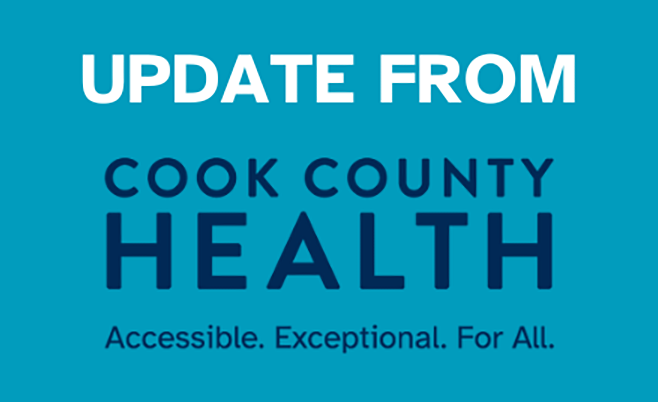In an effort to cut down on the number of unnecessary cardiac imaging procedures being done in the United States, the Centers for Medicare & Medicaid (CMS) is going to start requiring doctors and providers to submit proof that they consulted a computer-based decision support tool when ordering one of these imaging procedures.
Failure to provide such proof could result in denial of payments for that procedure.
The change will be a “massive shift” in the way reimbursement is currently done, and it’s one that many physicians likely won’t be ready for in time for the January 1, 2018 implementation date, said Dr. Rami Doukky, Chief of Cardiology at Cook County Health & Hospital System (CCH) and lead author of a paper on this topic. The paper was published in the journal Annals of Internal Medicine on February 28.
“For decades, CMS has relied on physicians’ judgment to determine if the test is necessary and appropriate… It has been an ‘honor system,’ said Dr. Doukky. “But in the 1990s and the early 2000s, there was an unsustainable growth in the use of cardiac imaging procedures, and the increase in use was at twice the rate of growth in other medical services, suggesting excess and perhaps unnecessary use.”
To address this, CMS is requiring that doctors and providers have proof that they consulted a computer-based Clinical Decision-Support Mechanism (CDSM) when ordering advanced imaging procedures, such as a CT scan or a magnetic resonance imaging (MRI). These CDSMs, which are available online and in smartphone applications, are meant to offer guidance on when cardiac imaging is appropriate and when an alternative test or no testing may be better for a patient.
Doctors can still order what would be considered inappropriate or rarely appropriate imaging if they see fit. But it will be recorded as such by the Centers for Medicare & Medicaid. And physicians who are found to use inappropriate testing too much may have to start getting prior authorization from CMS whenever they want to order an imaging study.
Dr. Doukky said the goal of reducing inappropriate cardiac testing is an important one. Yet, he said we need to figure out how to do this without loading more work on physicians. Making changes to the billing processes for Medicare and Medicaid, so that it indicates when a CDSM has been consulted, will also need to happen at hospitals before the change goes into effect, Dr. Doukky pointed out.
“There are a lot of unknowns about how this will play out in the real world and what the potential unintended consequences would be,” he noted. “Critical to the success of this effort is having close collaboration between all stakeholders, including referring physicians, imagers, information technology leaders and billing services to mitigate any difficulty in implementing CMS’ new requirements and most importantly, maintaining patient access to timely imaging procedures.”
Dr. Claudia Fegan, Executive Medical Director of CCH who did not take part in Dr. Doukky’s paper, commended Dr. Doukky for bringing to light a critical issue that will have system-wide ramifications.
“As the practice of medicine becomes increasingly more complex, the focus of CCH continues to be to make the best use of our limited resources to serve our patients well,” she said. “Dr. Doukky’s work in this area not only aligns with this mission, it facilitates the need of our providers to have the consensus opinion of experts when making decisions about the approach to evaluate patients.”

